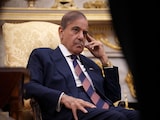- Andhra Pradesh has formed a Group of Ministers to draft new social media regulations
- The committee will review laws and recommend ways to curb misinformation and abuse
- A fact-finding body will verify claims to proactively counter false information
Andhra Pradesh and Telangana are taking bold, but very different approaches to regulating social media. Andhra Pradesh is pursuing comprehensive new legislation to curb misinformation and online abuse, while Telangana has stirred controversy by moving to enhance surveillance and open "history sheets" on habitual social media offenders.
The Andhra Pradesh government, under Chief Minister N Chandrababu Naidu, is taking a legislative approach to digital accountability. On Wednesday, the state constituted a high-powered Group of Ministers (GoM) to study and draft new regulations for social media.
The five-member committee includes key ministers such as IT Minister Nara Lokesh and Home Minister Vangalapudi Anitha. The GoM has been tasked with a broad mandate, including reviewing existing laws to pinpoint gaps in compliance and enforcement.
They are to study international best practices for digital platform regulation and recommend measures to hold social media platforms accountable for misinformation and online abuse. The panel is also expected to advise on strengthening user rights and establishing nodal agencies for monitoring content.
The initiative was spurred by Chief Minister Naidu's concern over false information being spread, particularly concerning government schemes, and Home Minister Anitha's insistence that existing laws are inadequate to protect women from online vitriol and derogatory posts.
The government also plans to create a fact-finding committee to verify claims and proactively counter misinformation.
The move comes after the Andhra Pradesh High Court issued a directive in July, urging judicial magistrates to exercise caution and adhere to existing Supreme Court guidelines before remanding individuals solely based on social media posts, highlighting the need to safeguard free expression.
In contrast to Andhra Pradesh's legislative push, the Telangana government has opted for a stricter enforcement strategy, focusing on increased surveillance of persistent offenders.
The Telangana Cyber Security Bureau has reportedly moved to open 'history sheets', a measure traditionally reserved for serious criminals and organised crime, against individuals deemed to be "habitual social media offenders."
This controversial directive is aimed at placing those who repeatedly post inflammatory content, hate speech, or severe misinformation under continuous police surveillance and scrutiny.
The move has drawn criticism from digital rights activists and legal experts, who argue that it could be misused to curb political dissent and potentially infringes upon the fundamental rights of online users by subjecting them to surveillance without a formal conviction.
Both states' efforts are part of a larger national trend towards stricter digital regulation, underscoring the growing tension between maintaining law and order in the digital space and protecting constitutional liberties.















